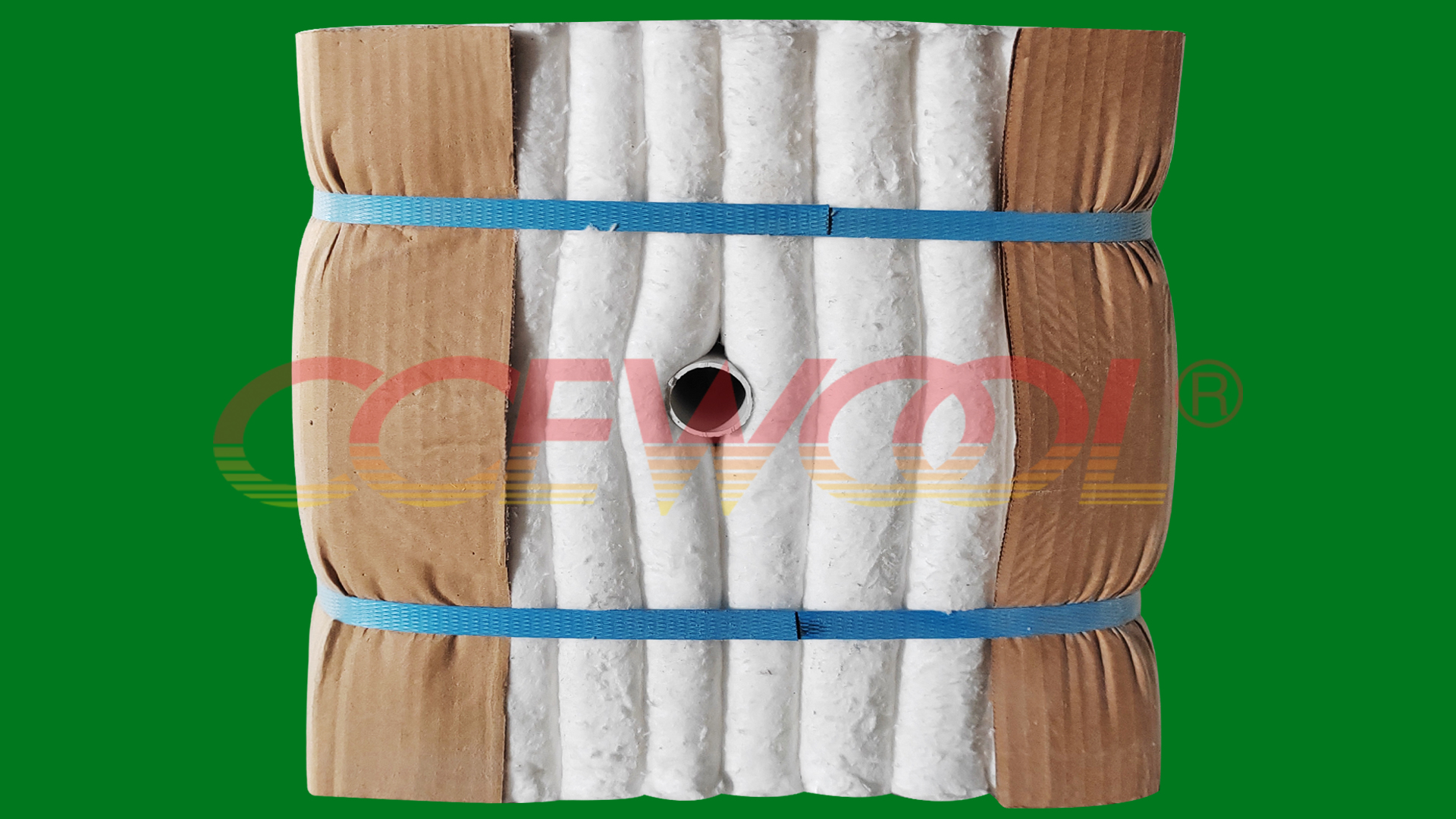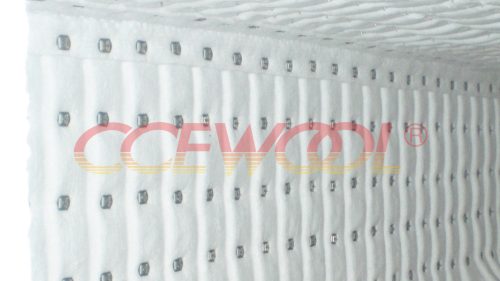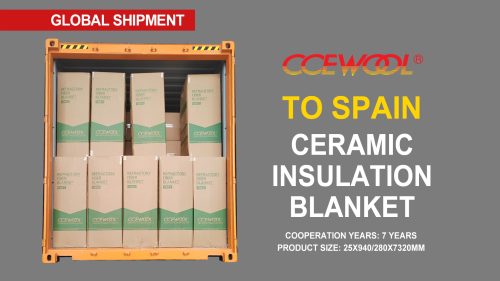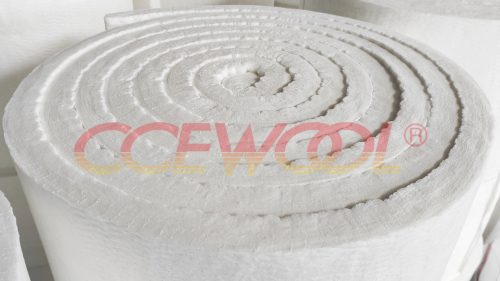Is Ceramic Fibre Folded Block Insulation Good?
- 16 Apr, 2025
- Industry

As high-temperature industries continue to develop, the demand for insulation materials has significantly increased. Today’s applications not only require low thermal conductivity and excellent energy-saving performance, but also demand easy installation, thermal stability, and long service life. Against this backdrop, CCEWOOL® ceramic fibre folded block has become one of the most popular insulation materials for industrial furnace lining systems.
What Is a Ceramic Fibre Folded Block?
CCEWOOL® ceramic fibre folded block is made by precisely cutting high-purity ceramic fiber blankets to specific dimensions, folding them in specialized molds, and compressing them with a high-tonnage press to form a modular high-temperature insulation product.
Each block is delivered in a pre-compressed state. Upon installation, the internal fiber structure rebounds elastically, automatically filling installation gaps and forming a continuous, seamless, and dense refractory insulation lining.
Eight Key Advantages of Ceramic Fibre Folded Block
1. High Insulation Efficiency, Improved Energy Utilization
Made from high-purity CCEWOOL® ceramic fiber, the thermal conductivity is 15–20% lower than traditional RCF materials, maintaining excellent insulation performance under high temperatures and significantly reducing fuel costs for users.
2. Folded Structure for Enhanced Sealing
With a unique wrinkled fiber blanket design, each module rebounds after installation, tightly sealing the furnace lining and preventing heat bridges and thermal loss, improving overall lining stability.
3. Easy Installation, Time-Saving
Modules are factory-sized and ready to install without on-site cutting. Quick and simple operation can improve installation efficiency by over 30%, making it ideal for projects with tight deadlines.
4. Long-Term Heat Resistance and Stability
Rated for 1260°C to 1430°C, the blocks maintain performance under high-temperature operation, without powdering, deformation, or flaking. Excellent thermal shock resistance and anti-aging properties ensure long-term reliability.
5. Elasticity to Absorb Mechanical Stress
After installation, the modules can effectively absorb stress caused by thermal expansion, shrinkage, and structural movement during operation, maintaining structural integrity.
6. Lightweight and Strong
The modules are only one-fifth the weight of traditional refractory bricks, greatly reducing the load on equipment structures and improving overall operational safety.
7. Customizable for Complex Conditions
Modules can be customized according to client drawings, structural requirements, and anchoring systems, allowing flexible solutions for non-standard furnace shapes and special processes.
8. Eco-Friendly Packaging for Greener Manufacturing
CCEWOOL® ceramic fibre folded blocks are packed using recyclable cardboard press boards, replacing traditional wooden packaging. This solution is 100% recyclable, enhances transport safety, and complies with European and North American environmental procurement standards.
CCEWOOL® ceramic fibre folded blocks are trusted for their tight sealing, excellent thermal efficiency, and outstanding energy-saving performance. On average, they help clients reduce energy costs by 10%–20%, with a service life of 5–8 years. These blocks have been widely applied in steel, metallurgy, ceramics, energy, petrochemical, and other high-temperature industries around the world.



